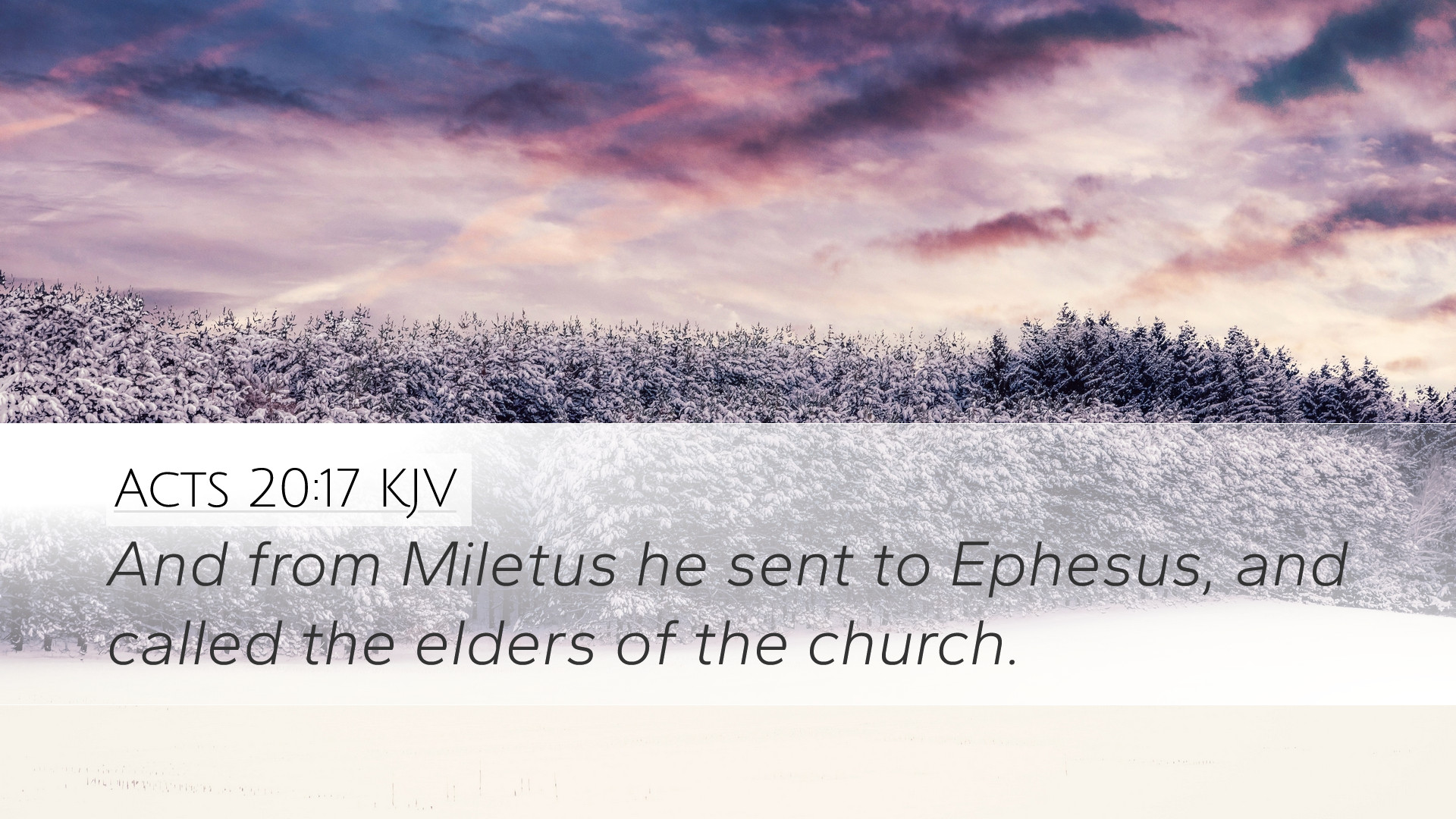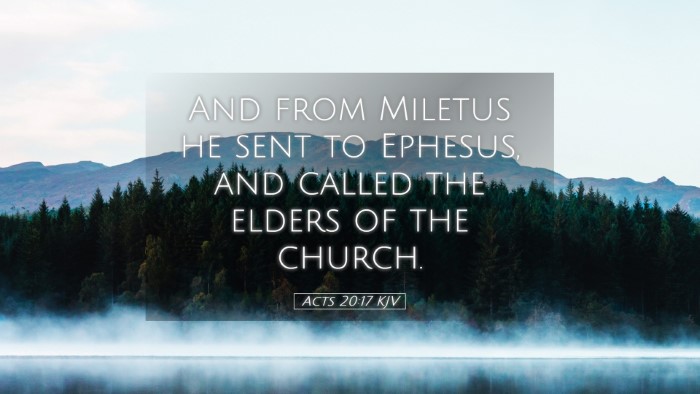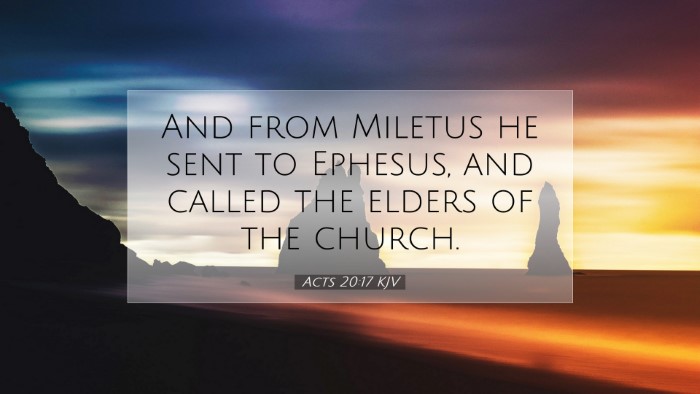Commentary on Acts 20:17
Text of Acts 20:17 (KJV): "And from Miletus he sent to Ephesus, and called the elders of the church."
Introduction
The pivotal moment in Acts 20:17 arises during Paul's missionary journeys, where he seeks to strengthen and encourage the church leaders. The verse encapsulates a significant transition in the apostolic mission and lays the foundation for understanding Paul's relationship with the Ephesian church.
Contextual Background
- Apostolic Authority: Paul, as an apostle, exemplifies the role of spiritual leadership.
- Ephesus: A major center of early Christianity, noted for its challenges and struggles.
Exegesis of the Text
In this verse, Paul is at Miletus, which illustrates the importance of strategic locations in his ministry. He intentionally sends for the elders from Ephesus, signifying his deep pastoral concern. This action reflects the setting before his final journey to Jerusalem, underscoring the urgency and gravity of his forthcoming warnings.
Significance of 'Elders'
Paul’s appeal to the elders highlights the early church’s structure, recognizing the leadership roles crucial for maintaining doctrinal purity and communal integrity. Elders, or presbyters, were tasked with shepherding the flock, a theme prevalent throughout Paul’s writings.
Matthew Henry emphasizes the necessity of elders, noting that their role ensures that the church is grounded in the teachings of Christ.
Miletus as a Meeting Place
Choosing Miletus, a coastal city, demonstrates Paul's strategic approach in ministry. Albert Barnes points out that Paul was aware of the dangers facing him in Jerusalem, demonstrating a careful balance between pastoral care and personal conviction.
Theological Reflections
This encounter reveals much about Paul’s theology of leadership. He acknowledges the active role of elders in guiding the community, modeling a collaborative ministry framework. The call to these leaders represents an intentional effort to align the church’s mission with God’s broader purpose.
Leadership Validation
Paul's direct call to the elders shall not be overlooked. Adam Clarke reflects on the essence of this calling, which was not mere formality but a deep, relational engagement. Such gatherings not only underscore the authority of Paul but also illustrate a vital aspect of church governance, which necessitates communal dialogue and unified vision.
Practical Applications
- Engagement of Leaders: The verse teaches modern church leaders the importance of engaging with their elders in decision-making.
- Strategic Meetings: Just as Paul took time to gather with the elders, leaders today must cultivate spaces for fellowship and discussion.
- Deepening Relationships: This passage calls us to prioritize relationships within church leadership, fostering an environment of support and mentorship.
Conclusion
Acts 20:17 serves as a testament to the vital role of church elders and leadership within the early Christian community. Paul’s actions reflect a holistic understanding of ministry, where authority and care coexist. By examining this verse through the lens of various commentators, one gains deeper insight into the biblical model of leadership, which is markedly relevant for contemporary pastoral practice.


